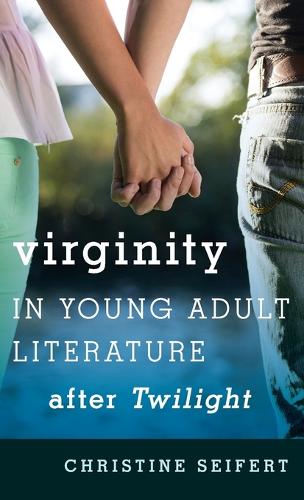
Virginity in Young Adult Literature after Twilight
(Hardback)
Publishing Details
Virginity in Young Adult Literature after Twilight
By (Author) Christine Seifert
Bloomsbury Publishing PLC
Rowman & Littlefield Publishers
27th January 2015
United States
Classifications
Tertiary Education
Non Fiction
Literary studies: c 1900 to c 2000
809.89283
Physical Properties
Hardback
174
Width 150mm, Height 228mm, Spine 18mm
345g
Description
Around 2005 something surprising happened in young adult literature: YA books became obsessed with presenting characters who wanted to have sex but couldntat least not without losing something vital to their identity. Since the publication of Twilight, the YA market has been flooded with books that feature naive virgins finding true love. While some YA novels do present nuanced depictions of sex and of healthy sexual relationships, the fiction most popular with young adult readers presents adolescent girls as virginal sex objects waiting to be fulfilled by their love interests. In Virginity in Young Adult Literature after Twilight, Christine Seifert looks at an alarming trend in YA novels. Labeling this phenomenon abstinence porn, Seifert argues that these novels that fetishize virginity are harmful to readers. Like pornography, such works reduce female characters to objects whose sexual acts are the sole expression of their identities. Chapters in this book examine paranormal, dystopian, and contemporary romance, paying particular attention to recurring virginity themes or tropes. The book also provides an antidote by showing how some sex-positive teen novels provide more empowering messages to readers. Organized by genre, the books were selected for this study based on their popularity with teens. Exploring how messages about virginity are sustained and repeated from text to text, this book also calls out key reader reactions to demonstrate how they are responding to these messages. Featuring a list of discussion questions, Virginity in Young Adult Literature after Twilight will be a valuable resource for teachers, librarians, parents, and mature young adult readers.
Reviews
Educators, librarians, parents, and scholars concerned with overarching views of female sexuality and its representation in literature and culture would find this book a useful resource, as it encourages the reader to read against the grain and question the ideologies present in each novel. * Children's Literature Association Quarterly *
Seiferts work is notable for its methodical approach and considerations of real readers responses, both of which will prove useful to a general audience interested in the implications of young adult literature and its messages about sexuality. Virginity in Young Adult Literature after Twilight does, in many ways, provide a handy introduction to a complex set of literary and social issues. [T]he texts engaging, accessible prose isone of its strengths, as readers are likely to find both the ideas themselves and the manner in which Seifert unpacks the evidence supporting her claims to be clear and enjoyable. Virginity in Young Adult Literature After Twilight opens ongoing conversations about literary portrayals of young peoples sexuality to a general audience in productive ways. [I]t is undoubtedly a text that many librarians, teachers, and parentsand, it should be noted, young adults themselveswill find valuable as they consider the content and messages of many popular young adult texts. * The Lion and the Unicorn *
Author Bio
Christine Seifert is an associate professor of communication at Westminster College in Salt Lake City, Utah, where she teaches rhetoric, strategy, and professional writing. A frequent contributor to Bitch magazine, where she writes about feminism and pop culture, Seifert is also the author of a young adult novel, The Predicteds (2011).
